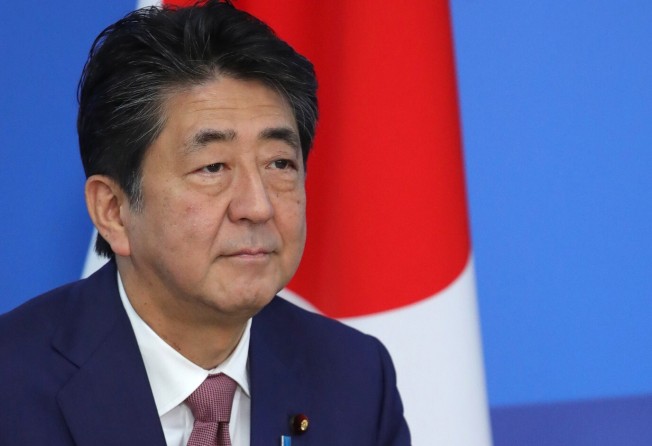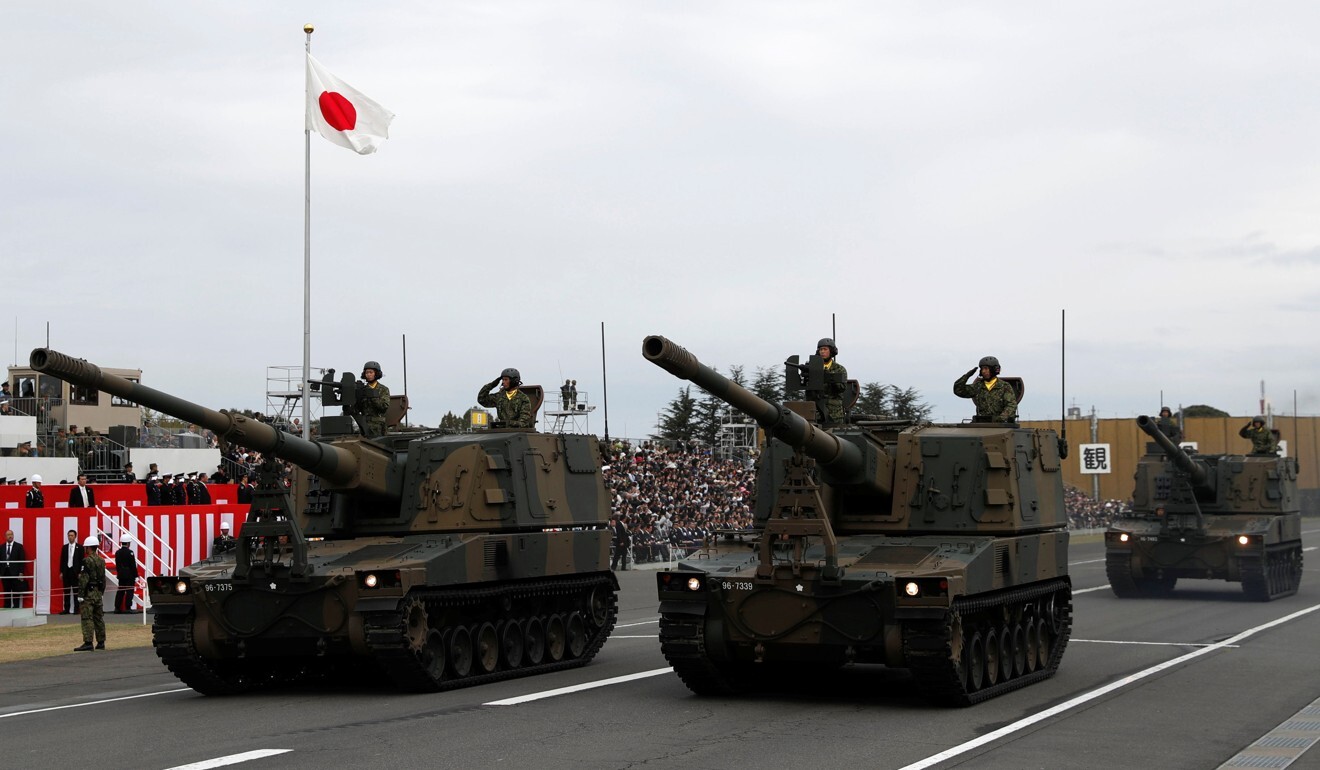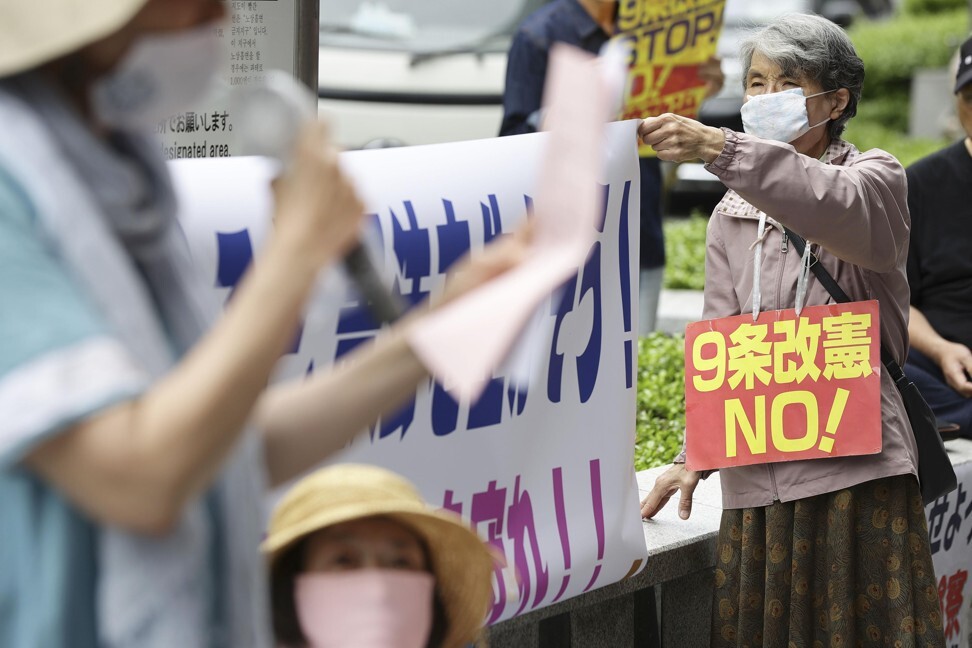Japan’s Shinzo Abe says he’s missed goal to amend pacifist constitution by 2020
- Abe planned to amend four elements of the constitution to give more power to the cabinet in an emergency, and to describe the Self-Defence forces as the nation’s military
- But he is unlikely to achieve that and the opposition has criticised him for using the coronavirus crisis to build momentum for his goal

Japan’s leader Shinzo Abe has expressed his regret to supporters for not bringing about a first-ever amendment of the country’s pacifist constitution, as opposition politicians criticised him for using the coronavirus crisis to build momentum for his goal.
In a video message to a rally of conservative, pro-amendment groups on Sunday – the 73rd anniversary of the constitution coming into force – Abe referred to his Liberal Democratic Party’s 2018 plan to amend four elements of the supreme law, which would include an emergency clause to give more power to the Cabinet at a time of a major disaster.
Infections in Japan have risen to more than 15,000 with about 550 deaths, stretching the health care system and depressing economic activity due to the closure of businesses under an emergency regulation, that will now last beyond Wednesday, the final day of the country’s Golden Week holiday, to the end of this month.
The prime minister and some other conservative lawmakers had previously called for active debate on such a clause, which critics warned could restrict people’s rights.
Opinion polls however have shown that a majority of Japanese find no need to accelerate discussions on whether to revise the constitution.
Yukio Edano, leader of the main opposition Constitutional Democratic Party of Japan, rejected the necessity of an emergency clause in combating the pandemic.
“It is absolutely not true that necessary measures cannot be implemented under the rule of the current constitution,” Edano said in a video shared on the party’s website.
He said Japan’s basic law on disaster management restricted private rights during the time of emergency and allowed authorities to implement essential measures.
Hiromi Murakami, a professor of political science at the Tokyo campus of Temple University, said Abe’s proposal to revise the constitution on the grounds that the government needed more powers in a crisis situation, such as the coronavirus outbreak, “came as a surprise”.
“Suddenly, he was contemplating pushing through these additional powers, but he was very quickly halted by the opposition parties on the grounds that the government did not need emergency powers and that now was not the right time,” Murakami said.
“There are already laws in place that give the government a lot of power in this sort of situation and a lot of people were not convinced that they needed more,” she added.
I think Abe will be pragmatic enough to realise that this alone will not be his legacy and he will feel that he has laid the groundwork for someone who comes after him to bring about these changes.
Abe, Japan’s longest-serving premier since he returned to office in 2012, has long argued for a revision to the war-renouncing Article 9, to add an explicit reference to the Self-Defence Forces describing them as the nation’s legitimate military. The current article prohibits Japan from possessing military forces and other “war potential”.
His government in 2014 reinterpreted the constitution to allow troops to fight abroad.
Abe’s term ends in September 2021 and there appears to be little appetite in the party or country for him to stay on beyond that date, analysts said, adding it was unlikely he would get the support of two-thirds of the Diet, Japan’s Parliament, to force a referendum to decide on revisions to the constitution, before he stepped down.

Stephen Nagy, an associate professor of international relations at Tokyo’s International Christian University, said: “My sense is that the LDP will follow him for as long as President Donald Trump is in power in the US because of the close personal relationship the two men have developed. But if Trump should lose the election in November, then that will not be as important.”
Nagy suggested though that Abe had potentially laid the foundations for a future Japanese leader to achieve an amendment.
“I think Abe will be pragmatic enough to realise that this alone will not be his legacy and he will feel that he has laid the groundwork for someone who comes after him to bring about these changes,” he said.
He will console himself, Nagy said, with the thought that Japan has become a far more influential voice in global and regional debates since the Trump administration “fractured the global order”.
Help us understand what you are interested in so that we can improve SCMP and provide a better experience for you. We would like to invite you to take this five-minute survey on how you engage with SCMP and the news.
